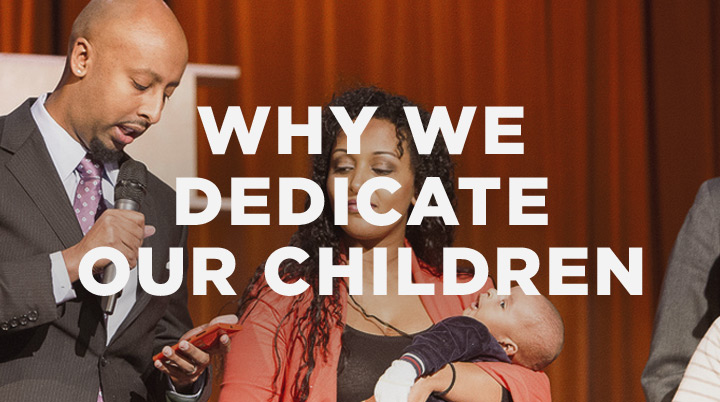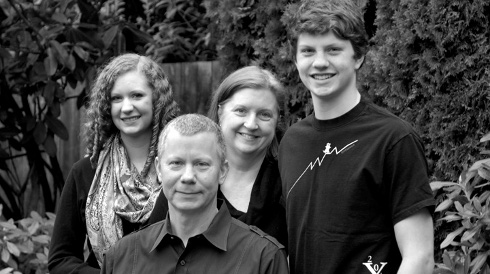Latest
-
Objections to the Christian Faith from the Unchurched and De-Churched
 Tue Dec 02, 2014
Tue Dec 02, 2014
by Resurgence -
Craig Groeschel: We Innovate for Jesus
 Tue Oct 14, 2014
Tue Oct 14, 2014
by Resurgence -
Mark Driscoll: Revelation
 Tue Oct 07, 2014
Tue Oct 07, 2014
by Resurgence -
RESURGENCE LEADERSHIP #034: JOHN PIPER, WHY I TRUST THE SCRIPTURES, PART 2
 Tue Sep 30, 2014
Tue Sep 30, 2014
by Resurgence -
Resurgence Leadership #033: John Piper, Why I Trust the Scriptures, Part 1
 Tue Sep 23, 2014
Tue Sep 23, 2014
by Resurgence

Archives
Why we dedicate our children to the Lord

Dads and moms, public baby dedication marks one moment in a lifetime of dedication, not only of your children, but also of your whole heart and home.
Children are a great blessing.
We celebrate when they are born, and parents love to publicly dedicate their little ones to the Lord in the context of gathered worship. These are fun and special moments of celebration for the whole church, but what is baby dedication really about? What does it mean?
It begins with godly vision for our homes.
My wife, Hilary, and I have two kids: a daughter in her early 20s, and a son in his teens. From the moment we found out we were expecting a baby, I began praying, laying hands on my wife’s pregnant belly, seeking God’s redeeming grace for each child. It still amazes me how powerfully I began to experience God the Father’s love in my heart toward the baby sinner that was soon to be born.
Children are a great blessing.
My vision as a young father was that our home would be one where the gospel would be central, and where God’s Word would be read, heard, loved, and lived. I prayed that our kids would very early come to know, love, and follow Jesus as their Savior and Lord.

The Tompkins family
And by his grace alone, our kids do love Jesus, following him joyfully as Lord. And of course my praying continues. I pray that they would continue to follow our King all the days of their lives, creating a godly legacy of faith for generations to come.
Dads and moms, this is what I want you to know: Public baby dedication marks one moment in a lifetime of dedication, not only of your children, but also of your whole heart and home.
Six things to understand about dedicating children
- The practice of baby dedication is based on scriptural precedent, rooted in the Old Testament, in which Jesus was presented to the Lord in the Temple as an infant (Luke 2:22–35).
- It is also based on and acknowledges God’s blessing upon and concern and care for children (Isa. 54:13; Matt 18:1–5, 10; 19:13–15; Luke 18:15–17; Acts 2:39; 1 John 2:12–13).
- It is you, parents, who are doing the dedicating. It is a commitment you make in your heart before Jesus and agree together to live out in your home. The ceremony performed during a church service is simply a public acknowledgement of that commitment.
- You acknowledge that your children are a gift given you by God (Gen 33:5; Psalm 127:3–5). As such they are a blessing, a great privilege, and a source of joy (Prov. 23:24–25)—and a lot of work too we know! Ultimately we recognize that they have been created by our Father in heaven, and as such belong to him, being entrusted to you as stewards to raise in Jesus (Eph. 6:4, Deut 6:7).
Baby dedication is a commitment you make in your heart before Jesus and agree together to live out in your home.
- You commit to live your lives as parents, by the grace of God, in such a way as to be a positive example as followers of Jesus. You pray that your children will find it easy to follow you as you follow Jesus, and that you will not become a stumbling block to your children’s saving faith in Jesus.
- Your church leadership and community (elders, deacons, and members) commits to support and equip you by the grace of God to fulfill your responsibility, and likewise to be good examples to your children.
Dedicating children to the Lord is an expression of our commitment to persevering faithfulness in raising our children out of the heart-posture that God calls us to embrace daily: “This is the one to whom I will look: he who is humble and contrite in spirit and trembles at my word” (Isa. 66:2).